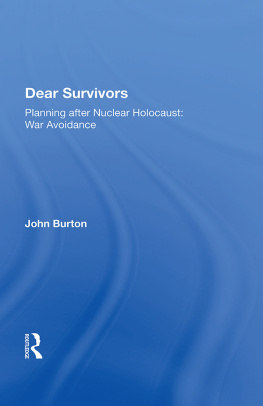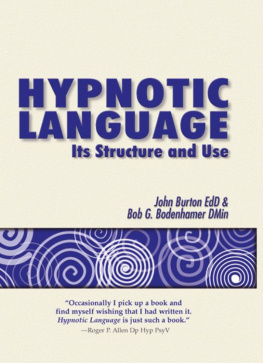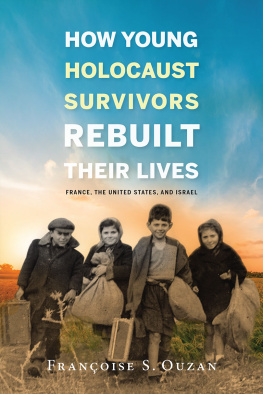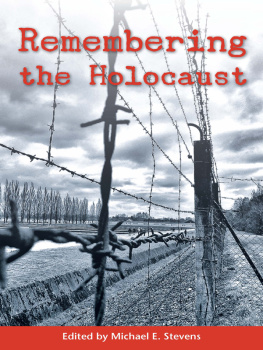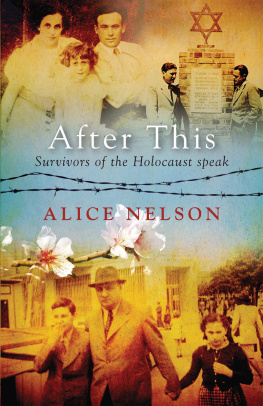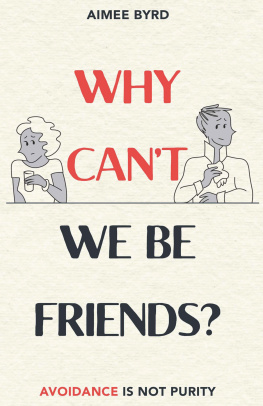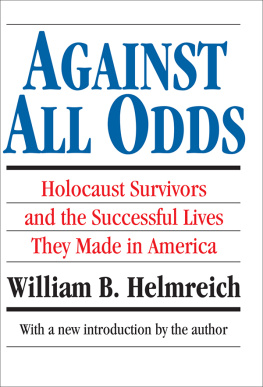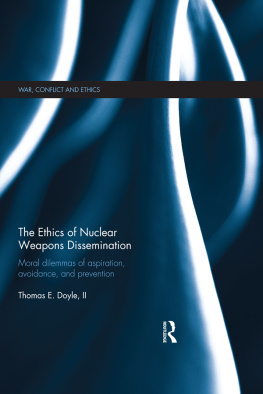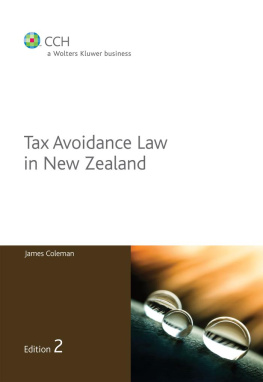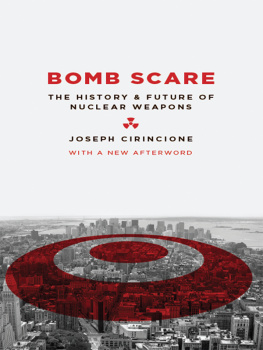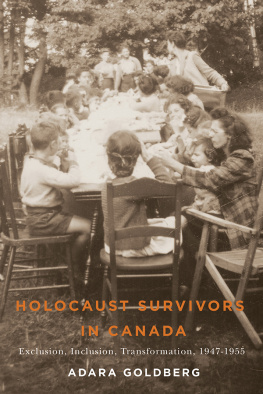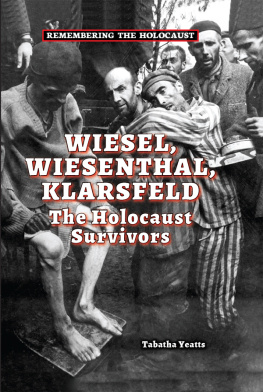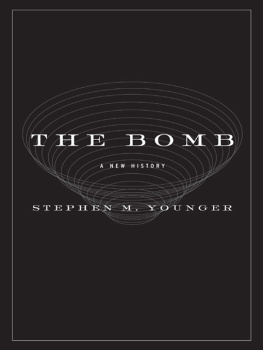First published 1982 by Westview Press
Published 2018 by Routledge
52 Vanderbilt Avenue, New York, NY 10017
2 Park Square, Milton Park, Abingdon, Oxon OX14 4RN
Routledge is an imprint of the Taylor & Francis Group, an informa business
Copyright 1982 by John Burton
All rights reserved. No part of this book may be reprinted or reproduced or utilised in any form or by any electronic, mechanical, or other means, now known or hereafter invented, including photocopying and recording, or in any information storage or retrieval system, without permission in writing fromthe publishers.
Notice:
Product or corporate names may be trademarks or registered trademarks, and are used only for identification and explanation without intent to infringe.
Library of Congress Cataloging in Publication Data
Burton, John, 1915
Dear survivors.
Bibliography: p.
1. War. 2. Civilization, Modern--1950
3. World politics--19751985. 4. Atomic warfare.
5. World War III. I. Title.
U21.2.B87 1982 335.028 82-50666
ISBN 0-86531-455-1
ISBN 0-86531-456-X (pbk.)
ISBN 13: 978-0-367-01944-0 (hbk)
Dear Survivors
First let me give you an outline of what I plan to do in this letter. After World War II many of us were actively engaged in post-war reconstruction. Indeed, the exercise commenced well before 1945: we had two or three years of planning because that war, unlike this, lasted for five years. The holocaust of World War III was a direct result of our failures: despite the opportunity to plan in advance (an opportunity you do not have) we went about making the necessary immediate adjustments to get the economic system back to normal and the inter-State and colonial systems reinstated along pre-war lines, without realizing that by going back to business as usual we were inevitably inviting conflict in the future. We, in effect, set about re-creating the conditions that had led to that warand to World War I. We failed, as I shall argue in my first section, because there was no knowledge base on which to work. We did not fully understand what started war in the first place, except in the most superficial terms about Germans, Italians, Japanese and their leaderships. On the other hand, by the 1980s there was no intellectual excuse for failure to avoid war in the future. You, in your predicament, for which you as leaders and administrators on both sides of the conflict are responsible, will not agree with this conclusion, but I hope I can convince you.
However, your main problem now while you wait for the All Clear, is for you to determine your objectives. What are your goals? How are you to avoid the pre-World War III problems associated with ideologies as the basis of political decisions? Is there no objective means of arriving at goals that are attainable and policies that succeed? This is the subject of my next section. I call it An Objective Basis. In it I suggest that in the 1970s we had come to the conclusiontoo late to prevent what has now happenedthat there are certain basic and universal human needs that have to be satisfied if the individual and group are to be harmonious members of their wider societies. These needs offer objective goals and bases for policy-making.
Just to underline this argument I go on to discuss several consensual assumptions that were the bases of policies, but were clearly false. This is to convince you that it is important for authorities to encourage fundamental thinking about social and political relationships and to take note of its outcomesstifle thought or ignore thought and policies go haywire. The socialist countries tended to do this; but they were not alone. It was tragic in the West, when governments began widespread cutbacks to education and research in social and political areas, and to favour instead technological training in the 1970s. This was the market wants ideology prevailing over needsjust when we were beginning to make progress and to explore some important new ideas.
To make what is argued more realistic I have devoted the next two parts of this epistle to applications in industrial relations and in political relations. This is merely to demonstrate that intellectual thinking is not necessarily ivory-tower stuff, as many of you claimed when I tried to have discussions with you in the decade before World War III.
I think it is worth considering why our thinking was so primitive for so long. Civilizations are only babies, it is true; but there seems to be, in retrospect, very little justification for the slow advances in political thought as compared with the tremendous strides taken in technological thinking. However, one reason was resources: far more man-hours were devoted to technology than to problems of human relationshipslargely because of the general interest in market wants rather than in human needs. Another more fundamental reason seems to have been a methodological one. How should we have tried to acquire the necessary knowledge? We did not spend enough time on learning how to think, especially in respect of the more complex problems of human relationships. Simple ideas and examples are adequate for most physical science problems and technological development, but we did not get down to thinking about human relationships as a scientific or logical challenge. We were prepared to content ourselves with an ideological approach. There were some far-out philosophers, notably Kuhn and Popper, who thought more widely, but got it wrong because they had little actual experience or contact with those who did have real experience and who were facing practical problems in research or in application. In the next section I discuss these issues. Dont pass it over, even though it seems a bit beside the point when you are thinking about cleaning up the mess, because if you get this wrong you get the lot wrong. If only we had taught how to reason right through from primary to university education, things would have been different. In practice this approach was rarely taught even at universities. Worse still, university teaching itself was usually conducted in total ignorance of some of these important philosophical considerations, which resulted in teachers and students arriving at false conclusions in many fields important to the study of human relationships.
This brings me to the end of is concerned with War Avoidance Policies.
You will, when you emerge, be so concerned with the immediate problems of law and order, survival and administration that you will be led step-by-step back into forms of organization that prevent you carrying out whatever long-term plans you may have thought about while in your shelters: the way you handle the first few days will determine to a large degree the forms of social and political organization that will evolve. There are system processes that take decision-making out of your control. Take, for example, the decision that was one link in the chain of events that led to this nuclear holocaust: the attack on the President of the United States in 1981. It became obvious at that time that communication links could be disrupted by such an event, and the decision was made to give a final power of decision to the officers in control of retaliation. This was a logical, rational, administrative arrangement to make. There was no other logical decision possible. You will find, when you are cleaning up, that one decision leads to another. Unless you have a plan that is thought out in advance, unless your decisions are based on some objective principles and goals that you have discovered and thought through in advance, unless you are committed to your goals and their pursuit to the extent that you will not allow institutional demands to frustrate human needs, without knowing it you will be a slave to decision processes. My next section, called System Imperatives, deals with some of these issues.

